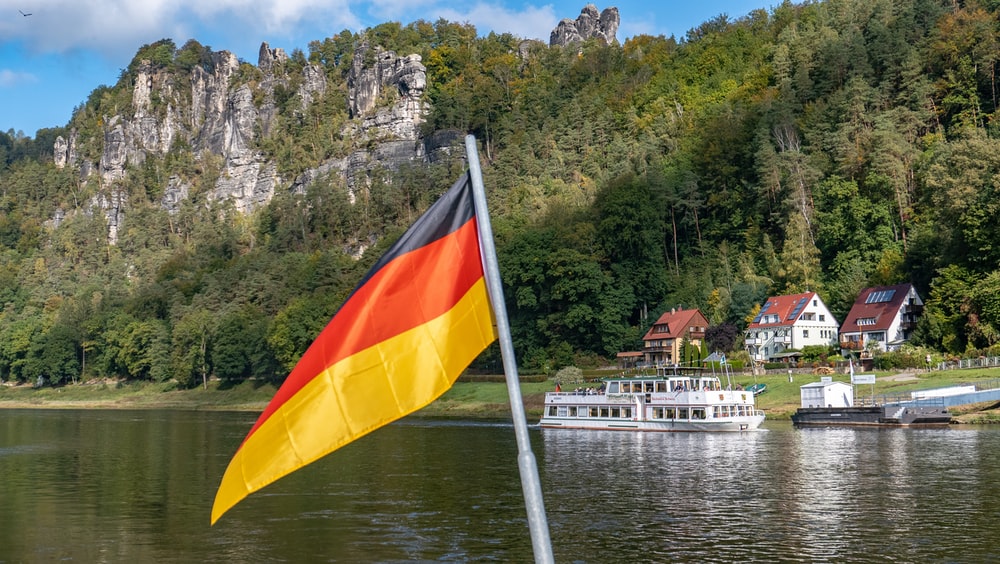Exploring the Dichotomy of Germany
With an area of 357,386 km², Germany is not that big of a country. However, many have still noticed that there are quite some differences between the Northern and the Southern part of the country. You might have also experienced the changes in culture, food and dialect while moving from the North to the South of Germany. This blog post shares what German people think about the differences between the two parts.
Historical and Cultural Roots of the Divide
Some believe that, it might partly have to do with religion, but not all of it. Northern Germany is predominantly Protestant, while most of southern Germany is Catholic. The main problem is prejudice. According to The Spiegel, „People in the cool, practical, intellectual, industrialized, liberal north of Germany think the lazy hick farmers in the south are backward and racist, and they talk funny too“. They also state that Berliners will even hate the southern German mountains because they make them feel claustrophobic!
Stereotypes and Prejudices: North vs. South
Booka Local recently published its ebook „Ask the Locals“ where we asked locals if they think there is a difference between North and South Germany and this is what they said:
„There is a gradient in Germany, you can say the further south the more conservative people are. People in the north are cool and liberal, in the south more cordial but more conservative. In the north more fish, in the south more meat. As I said, this is a rough guide. In general, Germany is quite different in its regions in terms of mind- set, dialect, culture, food, customs, and so on.“ (Jens, 36)
Lifestyle and Attitudes: A Local Perspective
„The southern Germans love the cosiness and are very traditional. The northern Germans are cool.“ (Johannes, 35)
„JAAA! They are two different cultures.“ (Silvia, 27)
„Yes! With the southern Germans, it’s often about their reputation, while the northern Germans don’t care.“ (Karin, 27)
„Northern Germany appears more open.“ (Hanna, 26)
„There are cultural differences between regions in Germany. Even between Bavaria and Baden-Württemberg. A prejudice against Bavaria is possibly regional patriotism. Or socializing in the Bierstübl. I think, however, one should not refer to the Munich Schickeria or the Oktoberfest to the whole of Bavaria. Baden-Württemberg stands for a lot of money and industriousness, but also for stuffiness. Northern Germans are said to have a roughness and a sober manner. They often don’t talk to people directly and prefer to keep to themselves. But once you’ve cracked the ice, there’s a warm core underneath. I think the statement “hard shell, soft core” applies well.“ (Emilia, 30)
Do you want to know what else the locals think about the difference between the two parts of Germany and about other German stereotypes? Download our ebook for free now!
Economic and Industrial Landscapes
It was shared on Quora that „agriculture and farming is most common in the south because there aren’t as large cities next to each other. There’s a lot of space for livestock and growing vegetables. There are big cities like Munich, but it is definitely different from them because it’s located near smaller towns and mountains. People in the South tend to be very stingy and like to gossip (obviously this happens more in smaller towns since everyone knows one another) but it is definitely more of a southern thing since people in the rest of Germany just like to mind their own business“ (Royce, 2018).
„Germans who live in the North tend to be very outgoing and talkative in terms of making people feel welcome. It starts with words like “Moin” that make you feel at ease and comfortable. They also tend to have a great humor whereas Bavarians for example tend to be more reserved and they have a very different humor a lot of times. Bavarians are often seen as cold and a lot of people think that bavarians think of themselves very highly so they come off as arrogant which is why Germans joke about Bavaria being it’s own country. Keep in mind that these things are generalizations and not EVERY person who lives either in the North or South is exactly like that but speaking from experience those rumors definitely have some truth in them“ (Royce, 2018).
The Role of Geography in Shaping Regional Identities
People living in Germany have seen many differences between North and South Germany. According to them, the cultures, religions and manners are the most different. It is however important to note that not all people from those two parts share the same characteristics as some people might have talked about. Northern and Southern Germany may have its differences, but it is certain to say that both are stunning places to visit!
